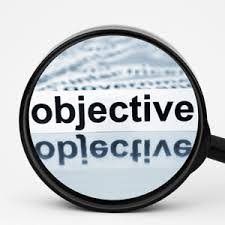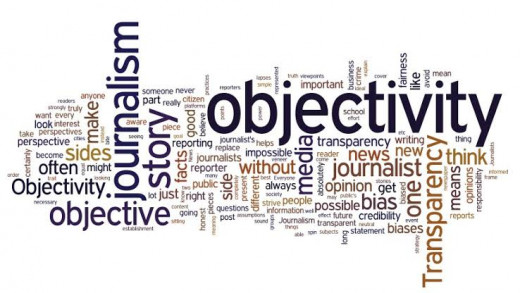To Every Man His Due: The Battle For Justice #5

The word Justice as it has been beautifully said, has a lofty but tragic sound. It has enkindled noble passion and inspired the practice of the finest generosity. Yet, it also reminds us of great wrongs and of widespread destruction and suffering. So much so that the whole history of mankind could be written under the heading: The battle of Justice.
Objectivity
Objectivity as presented in justice is quite different from the other virtues, and its expression can be said to be easily judged as objective or not objective. In fact, while it is possible to establish from outside what is objectively just and unjust, it does not make much sense to ask what is objectively brave or cowardly, temperate or intemperate for these deal with the internal.
Justice is realized above all in all external acts. By looking at the action expressed, I do not know whether the person has been brave or cowardly, temperate or intemperate. I would need to know the subject and his state of mind when he executed the action. On the other hand, the justice of an action may be known from outside and by an impartial third party.
Since justice is directed to the other person, the importance of the external action in justice becomes vital. The realization of justice is effective in concrete acts which express the good intended. External actions are needed because the other person is not affected by what I intend, think, feel or will, but only by what I do; only by the external act will the other receive what is his due.
In justice, what is essential the act and not the intent. Since what is needed is the act, justice is not hard to recognize, and it does not require interior disposition; all it requires is to act. Kant puts it this way: the other person may be in need or not, he may be in distress or not; yet if it is a question of his right, then, I am obliged to satisfy it. Once it refers to right, decision and inner feelings play no considerable part, exterior acts directed to other is what is required.
Thus in the realm of justice, good and evil are judged purely from deed, regardless of the interior disposition of the doer. The point is not how the deeds accord with the doer, but how they influence the other person. An act of justice may be done with an unwilling mind, or done out of reluctance. The feeling of the doer doesn’t matter, what matters is that the fact that justice is given, and the receiver sees the gesture as their due.

There is not much argument to deciding the placements of the various acts of justice. Since all external actions belong to the field of justice: they are either just or unjust. Of course, there are external acts of fortitude, temperance, etc., but in any external act, justice or injustice comes always into play. When a person hits another one because of anger, his undue action destroys justice, while gentleness is destroyed in the immoderate anger.
The external nature of justice makes it a broad subject in the society. This is so because communications in the society is based on actions. Thus, every external action has a social influence. We do not speak without being heard. We do not use a thing without using our own property’ or another’s. To distinguish our own from what belongs to another is a function of justice. To teach untruth is not only wrong; it is unjust as well.
The whole field of active life is the field of justice, defined by its relation to another. What we seen in interaction is not the desire or motive behind the acts, because they belong to the realm of the personal; what is readily seen is the action itself and how the action relates to the other person.
Thus, there is the separation of the person and the action in justice. There is the possibility to differentiate the just thing apart from the condition of who does it. In justice, a person can do the just thing without being just, to carry out a just act while been unjust himself. What this relates to us is the dichotomy existing between deed and intention.
This interplay between deed and intention is a back and forth situation. A person does not have to be just to do the just thing and it also follows that a person can do something unjust without being an unjust person. This is possible because there is something objectively just or unjust, and this measure is based on the external act. A wrong act suggests injustice, but does not intrinsically configures the doer as unjust, because he can carry out another action that is just. An unjust person can carry out a just action also. We know that actions can be devoid of the individual person. My actions does not necessarily define my person.

If somebody, because of a misunderstanding, takes something that belongs to somebody else, he has done something objectively unjust; although, on the one hand, it is clear that he is not such. The action was based on the misunderstanding. However, no one will approve such an unjust act just because it stemmed from a misunderstanding. In the same vein, one could reject or even fight against a certain political solution as objectively unjust without questioning the adversary’s moral integrity. Moral standing, integrity or personal values of a person does not affirm his action as right, rather the rightness is based on the act itself.
Moreover, we should not because of the seeming separation of deed and intention in justice live out our lives in this manner. The integrity of man clearly demands that what is just be done but also that men be just as well. It is a test of right character to be truly who we are in intent and in deeds.
It is important to cultivate the right attitude to life because to get accustom to what we do most. The desire to do good and justice, and the daily practice of this brings a holistic lifestyle. We become inclined to the good and become friendly and accommodating with what and right, thus we effortlessly carry out the good we intend.
Although it is easy for the one who does not possess the virtue of justice to do what the just does, but such a person may not do it in the way the just man does it. The desire, pleasure, and promptness in which the just man carries out just action cannot be compared with the unjust.
Therefore, wherever justice is fully found, the external action should be the expression of an inner affirmation through which the other is acknowledged in what is owed to him. Good intentions are not enough for this. Good intentions should lead to good actions.
- To Every Man His Due: The Battle for Justice #6
The word Justice as it has been beautifully said, has a lofty but tragic sound. It has enkindled noble passion and inspired the practice of the finest generosity. Yet, it also reminds us of great wrongs and of widespread destruction and suffering.








